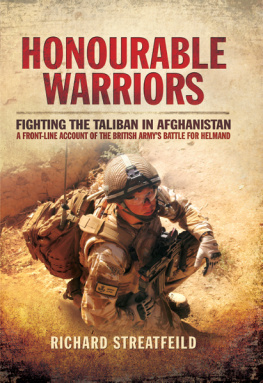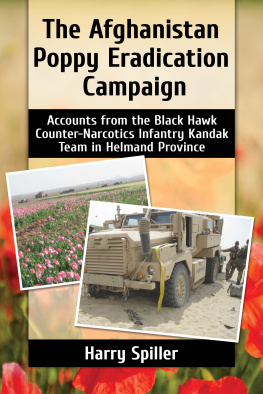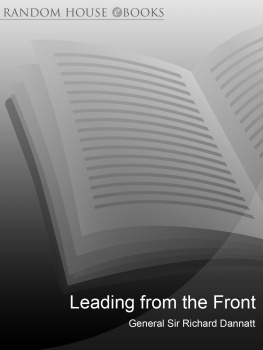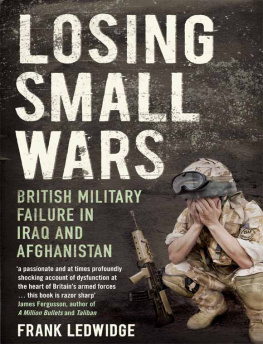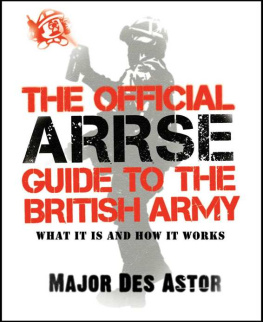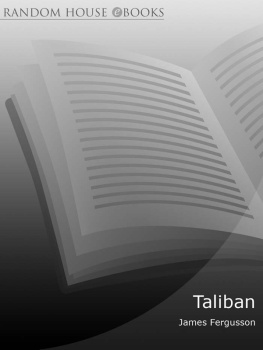James Fergusson is a freelance journalist and author who beganreporting on Afghan affairs more than twelve years ago. Hisfirst book, the acclaimed Kandahar Cockney, told the story of hisfriendship with Mir, an Afghan asylum-seeker in London. From1999 to 2001 he worked in Sarajevo as a press spokesman for OHR,the organization charged with implementing the Dayton peaceaccord that ended Bosnia's civil war in 1995.
www.rbooks.co.uk
A MILLION BULLETS
www.rbooks.co.uk
Also by James Fergusson
Kandahar Cockney
The Vitamin Murders
This eBook is copyright material and must not be copied, reproduced, transferred, distributed, leased, licensed or publicly performed or used in any way except as specifically permitted in writing by the publishers, as allowed under the terms and conditions under which it was purchased or as strictly permitted by applicable copyright law. Any unauthorised distribution or use of this text may be a direct infringement of the author's and publisher's rights and those responsible may be liable in law accordingly.
ISBN 9781407033822
Version 1.0
www.randomhouse.co.uk
TRANSWORLD PUBLISHERS
61-63 Uxbridge Road, London W5 5SA
A Random House Group Company
www.rbooks.co.uk
First published in Great Britain
in 2008 by Bantam Press
an imprint of Transworld Publishers
Copyright James Fergusson 2008
Maps HLStudios, Long Hanborough, Oxon
Extract on p. 134 from the First World War version of the song entitled 'We'll Never TellThem' by Jerome Kern, from the play Oh! What a Lovely War by the Theatre Workshop.
James Fergusson has asserted his right under the Copyright, Designs
and Patents Act 1988 to be identified as the author of this work.
This book is a work of non-fiction. In some limited cases names of people, places,dates, sequences or the detail of events have been changed solely to protect the privacyof others and for reasons of operational security. The author has stated to the publishersthat, except in such minor respects not affecting the substantial accuracy of the work,the contents of this book are true.
A CIP catalogue record for this book
is available from the British Library.
ISBN: 9781407033822
Version 1.0
This electronic book is sold subject to the condition that it shall not by way of trade or otherwise, be lent, resold, hired out, or otherwise circulated without the publisher's prior consent in any form other than that in which it is published and without a similar condition including this condition being imposed on the subsequent purchaser
Addresses for Random House Group Ltd companies outside the UK
can be found at: www.randomhouse.co.uk
The Random House Group Ltd Reg. No. 954009
For Melissa
Acknowledgements
The project could not have gone ahead without the approval ofBrigadier Ed Butler, commander of 16 Air Assault Brigade in 2006.I am indebted to him, as well as to Colonel Ben Bathurst and histeam at the Public Relations Directorate in the Ministry of Defence.
My thanks also to Susan Aird, Colin Ball, Jane Bonham Carter,Chloe Breyer, Rupert Chetwynde, Tim David, Adam Fergusson(both of them), Robert Fox, Phil Goodwin, James Hanning, TaniaKindersley, Alastair Leithead, Tif Loehnis, Anthony Loyd, DavidLoyn, Flora Maclay, Jenny McVeigh, Martin Melia, PeterMerriman, Gulalai Momand, Dave Muralt, Ian Nellins, DavidRamsbotham, Simon Reade, William Reeve, Chris Riley, TobySmart, Edward Smyth-Osborne, Rory Stewart, 'Stonker', MiriamSwift, Ray Whitaker, Piers Wickman, Doug Young and all atTransworld and to all those whose names for one reason oranother I cannot mention.
I heard so many extraordinary stories from the troops who tookpart in Operation Herrick 4 that it has not been possible to tell allof them here. My main purpose in writing this book was, andremains, polemical; it was never intended as an exhaustive history.But to Nick Wight-Boycott's Pathfinders, Gary Wilkinson and themen of 7 Para RHA, the OMLT officers and all the others whosevoices I know also deserve to be heard, I apologize.
Finally, I am deeply grateful for the cooporation and understandingof the families of the killed, not all of whose names appearin these pages. A percentage of the profits from this book will go toCombat Stress, the ex-Services mental welfare society.
Introduction
The war had been running for more than a month before thepublic properly woke up to it. It was not until early July 2006 thatthe first images of the fighting in Helmand began to filter on to ourtelevision screens. In retrospect it is clear that the news had someserious competition that summer, the hottest in Britain sincerecords began in 1772. Those still indoors were mostly tuned eitherto Big Brother, the seventh series of which had begun in May (thecompetition was eventually won by Pete Bennett, a ketamineaddict from Camberwell who suffered from Tourette's Syndrome),or, more likely, the closing stages of the World Cup in Germany.(England was knocked out by Portugal on 1 July after a penaltyshoot-out. The final eight days later, won by Italy, attracted anestimated global audience of 715 million people the mostwatchedevent in television history.)
Yet even for those paying attention it was hard to make out whatwas going on in Helmand or 'Hell Manned' as the BBCpersistently called it. Chinook helicopters touched down in violentsandstorms of their own making. Hoarse squaddies, their tattooedarms and chests exposed to the burning desert sun, droppedmortars into firing tubes with the speed and precision of robots ona production line. They crouched behind sandbagged machinegunsthat spat torrents of tracer fire, or zig-zagged towards mudbuildings and an unseen enemy to a soundtrack of explosions,curses and heavy breathing.
Our senses were tantalized. As the news anchors solemnlyexplained, most of the 'unique footage' on our screens had beenfilmed by the troops themselves. This sounded almost like a codedapology for the poor quality of the clips, which tended to be short,jerky and badly pixelated. And though the names of the battlefieldschanged Now Zad, Sangin, Musa Qala, Kajaki the crash-bangfootage soon took on a disturbing sameness. As viewers we reliedon the presenters to impose any sense of continuity or rationality.We could see that a military crisis was unfolding on the other sideof the world, yet the more we watched, the less the pictures seemedto offer an explanation of how or why this was happening.
One thing, at least, was clear: there were many members of theArmed Forces who would be missing the World Cup Final. Thiswas not some blip in a benign peace-keeping campaign that wewere watching, but a full-blown battle. The British, it seemed,were cut off and under siege in at least three southern Afghanmarket towns, manning the sangars of fort-like local governmentdistrict centres or 'platoon-houses' as they were sometimesknown against a well-armed enemy determined to throw themout. Rorke's Drift came to mind. It was as though a whole newfront in the War on Terror had opened up while we were lookingthe other way. General David Richards, the British commander ofISAF, Nato's International Security Assistance Force in Kabul,later appeared to confirm our groggy impression. The military, hesaid, was engaged in the most 'persistent, low-level dirty fighting'undertaken by the British since the Korean War, half a century ago.A professor at the Royal Statistical Society declared that Britishsoldiers in Afghanistan were precisely six times more likely to bekilled than their comrades in Iraq.
My concern was personal. As a journalist I had been reportingon Afghanistan for over a decade. My first book, KandaharCockney, documented the travails of Mir, a Pashtun interpreterwith whom I once worked, and whose family I helped to gainpolitical asylum in London in 1998. We are still close friends. Yet itnow looked, dispiritingly, as though our two countries were at waragain for the first time since 1919. The potential consequences ofthis renewed fighting, both for our friendship and for the peaceand security of the country he loved and to which he and his familyfervently hoped one day to return, were serious.


